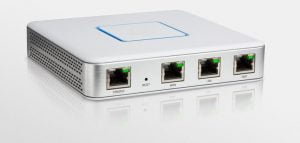Your IT partner has just told you your firewall has been breached.
What? There’s been a fire? Was there any damage?
In a manner of speaking, you are partly correct. While there hasn’t been a real fire with flame and soot and smoke, there is an emergency of another kind.
What is a firewall?
Firewalls, in the information technology (IT) world, are the first line of defense protecting your network and data from outside intrusion. That is, they keep the bad guys out and away from your data inside of your system and company. They know the difference between trusted and untrusted sources and monitor incoming and outgoing traffic based upon a defined set of rules.
A firewall  is typically hardware based and provides many protection layers.
is typically hardware based and provides many protection layers.
What are the types of firewalls?
A few examples of firewalls:
- Proxy firewall.
- Stateful inspection firewall.
- Unified threat management (UTM) firewall.
- Next generation firewall (NGFW).
- Threat-focused NGFW.
A proxy firewall is one of the earliest forms of firewall. They usually serve as a gateway from one device to another. These firewalls rely on packet filtering.
Stateful inspection firewalls are what are thought of as traditional firewalls. They allow, or block traffic based upon state, port, and protocol. An application gateway firewall is this kind of firewall.
UTMs couple stateful inspection firewalls with intrusion protection and antivirus. They are the simplest and easiest to use.
NGFWs include the attributes of stateful inspection, integrate intrusion protection, have application awareness and can address evolving threats.
Threat-focused NGFWs all of the attributes of a traditional NGFW plus provides advanced threat protection and remediation.
What does this all mean to me the end user? And how do I choose an appropriate firewall?
How should I choose a firewall?
Choose your firewall upon several consistent criteria:
- The size of your business. How many users you have on your network.
- The kind of work your users are engaged in. Finance people will have different security needs than operations staff and engineering or sales.
- Who your customers are and their security requirements.
- Is your staff working remotely?
Now what?
Once you’ve outlined your situation and requirements you are ready to choose the right firewall for your needs. Call us when you get to that point.

